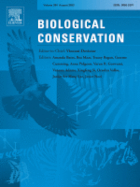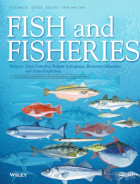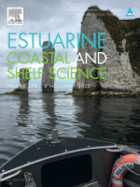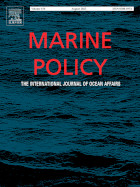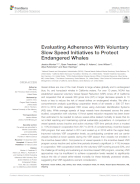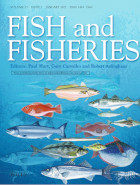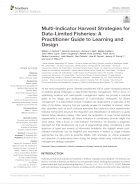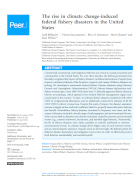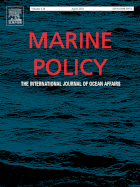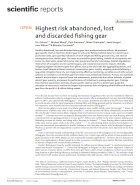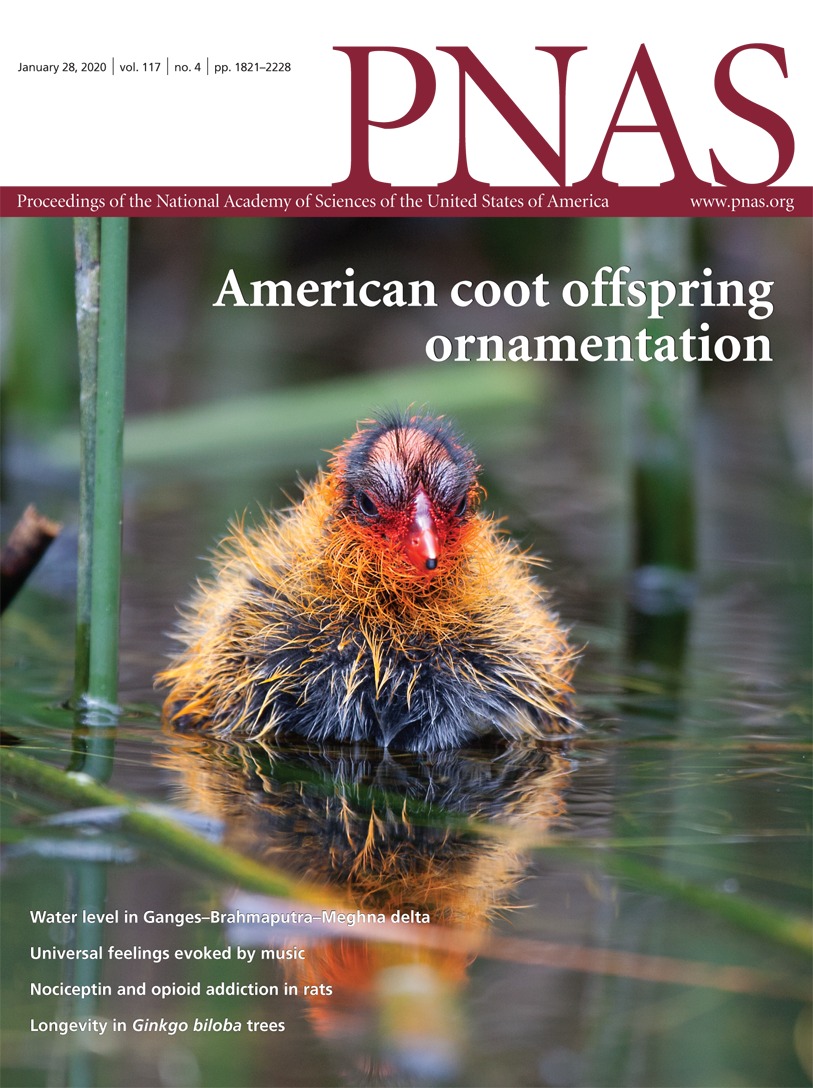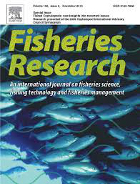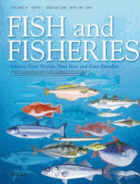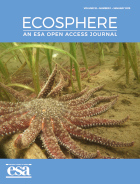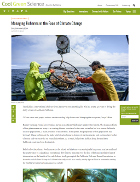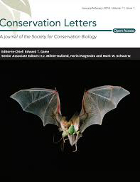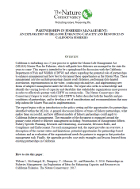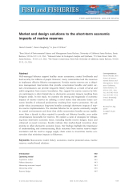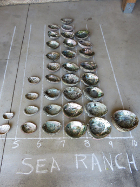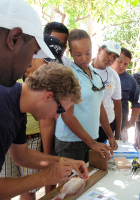Jono R. Wilson

Director of Science
Marine
[email protected]
Jono is the Director of Ocean Science for The Nature Conservancy’s California Chapter. His team operates across disciplines to address the world’s most pressing ocean conservation challenges: restoration and recovery of habitats and species, elimination of overfishing, mitigation of wastewater and plastic pollution, and the protection of island ecosystems. His work is aimed at helping the Nature Conservancy and partners make informed conservation and management decisions to build and maintain resilience in in the ocean. Jono is trained as a fisheries ecologist and spent many years working with small-scale fishing communities to improve outcomes for nature and people in Belize, Hawai’i, Indonesia, Peru, Mexico, and Palau. He continues to use a community-centered approach to conservation: developing partnerships, building trust, and supporting local actions to solve complex problems.
Jono earned a Ph.D. from the University of California, Santa Barbara, where he also serves as an Adjunct Professor at the Bren School of Environmental Science & Management.
What Jono is working on now:
Jono is exploring ways to increase the pace and scale of ocean conservation through adaptive decision-making, risk analysis, and adoption of novel tools and technology.
Select products
2025 | Marine | Technology | Science | Publications & Reports
Ship collision risk threatens whales across the world’s oceans
Nisi A, H Welch, S Brodie, C Liephardt, R Rhodes, E Hazen, JV Redfern, TA Branch, A S Barreto, J Calambokidis, T Clavelle, L Dares, A de Vos, S Gero, J A. Jackson, RD Kenney, D Kroodsma, R Leaper, DJ McCauley, SE Moore, E Ovsyanikova, S Panigada, CV Robinson, T White, JR Wilson, B Abrahms
Collisions between whales and ships are a leading cause of death for threatened whale species across the globe. In this paper, scientists identified high risk areas for whale-ship collisions by…2023 | Marine | Science | Publications & Reports
Static management presents a simple solution to a dynamic fishery and conservation challenge
Christopher M. Free, Lyall F. Bellquist, Karin A. Forney, Jenn Humberstone, Kate Kauer, Qui Lee, Owen R. Liu, Jameal F. Samhouri, Jono R. Wilson, Darcy Bradley
Dynamic ocean management frameworks can be a useful approach to fisheries management under climate change. In the oceans, marine heatwaves are increasingly common symptoms of climate change that can…2023 | Marine | Science | Publications & Reports
Characterizing state-managed and unmanaged fisheries in coastal marine states and territories of the United States
Michael C. Melnychuk, Charmane E. Ashbrook, Richard J. Bell, Lyall Bellquist, Kate Kauer, Jono R. Wilson, Ray Hilborn, Jay Odell
America’s fisheries provide nearly two million jobs and contribute $117 billion to the national GDP. Although state and territory fisheries account for 40% of the commercial value of U.S. marine…2023 | Marine | Science | Publications & Reports
Use of management strategy evaluation to understand the value of citizen science in managing an iconic California recreational fishery
Lyall Bellquist, William J. Harford, Frank Hurd, Alexis Jackson, Jeremy D. Prince, Jan Freiwald, Anna Neumann, Jack Likins, Jono Wilson
Conventional fisheries management relies largely on professional sources of scientific data collection, typically from academic or government institutions. Development of community-led data sources…2023 | Marine | Planning | Science | Publications & Reports
U.S. exempted fishing permits: Role, value, and lessons learned for adaptive fisheries management
Lindsay Bonito, Lyall Bellquist, Alexis M. Jackson, Kate Kauer, Mary G. Gleason, Jono Wilson, Stuart Sandin
Experimentation supports adaptive and climate-ready fisheries management in numerous contexts. Exempted Fishing Permits (EFPs) enable fisheries participants, scientists, and managers to…2022 | Marine | Technology | Science | Publications & Reports
Reducing the Risk of Mortality to Whales
Jessica Morten, Ryan Freedman, Jeffrey D. Adams, Jono Wilson, Aliya Rubinstein, Sean Hastings
The great whales, including, blue, humpback, and fin whales are threatened by collisions with ocean going vessels. Global shipping traffic is projected to increase up to 12-fold in coming decades.…2022 | Marine | Technology | Science | Publications & Reports
Lost Fishing Gear is a Key Contributor to Ocean Plastic Pollution
Brandon Kuczenski, Camila Vargas Poulsen, Eric L. Gilman, Michael Musyl, Roland Geyer, Jono Wilson
More than 4.5 million fishing vessels ply ocean waters each year, setting countless nets, traps, hooks and lines. Much of this fishing gear is made of plastic components and a significant fraction of…2022 | Marine | Technology | Science | Publications & Reports
Use of Simple Indicators to Improve Fisheries Management
William J. Harford, Ricardo Amoroso, Richard J. Bell, Matias Caillaux, Jason Marc Cope, Dawn Dougherty, Natalie Anne Dowling, Frank Hurd, Serena Lomonico, Josh Nowlis, Dan Ovando, Ana M. Parma, Jeremy D. Prince, Jono R. Wilson
Overfishing threatens the health of ocean ecosystems. Effective fisheries management is key to minimizing ocean impacts and improving outcomes for millions of fishing dependent people throughout the…2021 | Marine | Science | Publications & Reports
The rise in climate change-induced federal fishery disasters in the United States
Lyall Bellquist, Vienna Saccomanno, Brice X. Semmens, Mary Gleason, Jono Wilson
The health of ocean ecosystems is critical to maintaining natural biodiversity and sustainable fisheries, but federally-declared fishery disasters are reflecting devastating impacts to ecosystems,…2021 | Marine | Planning | Science | Publications & Reports
Beyond Protection: Fisheries Co-Benefits of No-Take Marine Reserves
Jono R Wilson, Darcy Bradley, Kristina Phipps, Mary G Gleason
Overfishing threatens the health and resilience of the ocean. In response, the global conservation community has set ambitious targets for protecting biodiversity inside no-take marine reserves. Yet…2021 | Marine | Planning | Science | Publications & Reports
Opportunities for Fishery Partnerships to Advance Climate-Ready Fisheries Science and Management
Serena Lomonico, Mary G Gleason, Jono R Wilson, Darcy Bradley, Kate Kauer, Richard J Bell, Thomas Dempsey
Climate change poses unprecedented challenges to the sustainable management of wild capture fisheries. Management systems that improve the flow of information so that actionable steps can be taken are…2021 | Marine | Science | Publications & Reports
Ecological Impact of Abandoned, Lost, and Discarded Fishing Gear
Eric Gilman, Michael Musyl, Petri Suuronen, Milani Chaloupka, Saeid Gorgin, Jono Wilson, Brandon Kuczenski
More than 4.5 million fishing vessels deploy fishing gear in the ocean every year. A significant amount of these nets, traps, lines, and floats are abandoned, lost, or discarded, threatening the…2020 | Marine | Science | Publications & Reports
Effective fisheries management instrumental in improving fish stock status
Ray Hilborn, Ricardo Oscar Amoroso, Christopher M. Anderson, Julia K. Baum, Trevor A. Branch, Christopher Costello, Carryn L. de Moor, Abdelmalek Faraj, Daniel Hively, Olaf P. Jensen, Hiroyuki Kurota, L. Richard Little, Pamela Mace, Tim McClanahan, Michael C. Melnychuk, Cóilín Minto, Giacomo Chato Osio, Ana M. Parma, Maite Pons, Susana Segurado, Cody S. Szuwalski, Jono Wilson, Yimin Ye
Does fisheries management work at improving the status of fish stocks? The answer is a resounding, yes. This article compiles estimates of the status of global fish stocks, comprising roughly half of…2019 | Marine | Planning | Science | Publications & Reports
Collaborative research reveals cryptic declines within the multispecies California rock crab fishery
Sean P. Fitzgerald , Hunter S. Lenihan, Jono R. Wilson, Carolynn S. Culver, Matthew Potoski
This paper highlights the benefits of collaborative fisheries research in the management of wild capture fisheries. The authors teamed up with commercial fishermen in the southern California…2019 | Marine | Technology | Science | Publications & Reports
Opportunities to improve fisheries management through innovative technology and advanced data systems
Darcy Bradley, Matt Merrifield, Karly M. Miller, Serena Lomonico, Jono R. Wilson, Mary G. Gleason
A lack of fishery data leads to uncertainty about stock status, which may compromise and threaten the economic and food security of the users dependent upon that stock and increase the…2019 | Marine | Planning | Science | Publications & Reports
An indicator‐based decision framework for the northern California red abalone fishery
William J. Harford, Natalie A. Dowling, Jeremy D. Prince, Frank Hurd, Lyall Bellquist, Jack Likins, Jono R. Wilson
Among abalone species that were once harvested along the California coastline, red abalone (Haliotis rufescens) supports the remaining recreational fishery. To support development of a red abalone…2018 | Marine | Planning | Technology | Science | Blogs
Managing Fisheries in the Face of Climate Change
The author discusses a need for a new paradigm in fisheries management to address the challenges of a changing climate. See related publication by the author and colleagues in Conservation…2018 | Marine | Science | Publications & Reports
CA Rock Crab Fishery Management
Sean P. Fitzgerald, Jono R. Wilson , Hunter S. Lenihan
Despite the economic value of California fisheries, many lack information needed to determine if fishing is occurring at a sustainable level. The Southern California Rock Crab fishery in the Santa…2018 | Marine | Technology | Science | Publications & Reports
Adaptive comanagement to achieve climate‐ready fisheries
Jono R. Wilson, Serena Lomonico, Darcy Bradley, Leila Sievanen, Tom Dempsey, Michael Bell, Skyli McAfee, Christopher Costello, Cody Szuwalski, Huff McGonigal, Sean Fitzgerald, Mary Gleason
Climate change is amplifying threats to ocean ecosystems and marine fisheries worldwide. In order to respond appropriately in the face of these ocean changes, commercial and recreational…2018 | Marine | Science | Publications & Reports
Partnerships in Fisheries Management
Wilson J. , McGonigal, H., Dempsey, T., Gleason, M., Rienecke, S.
Fisheries management in California is a complex, resource intensive process that is limited by funding and staff capacity. In this report, Conservancy scientists and colleagues identify ways in which…2016 | Marine | Science | Publications & Reports
Market and design solutions to the short-term economic impacts of marine reserves
Daniel Ovando, Dawn Dougherty, Jono R. Wilson
No-take marine reserves are a management intervention that can provide long-term fishery benefits. But, impacts of reserve implementation can negatively affect fishermen profits in the short term.…2016 | Marine | Technology | Science | Video
Sustainable Management of Abalone Fishery in California
The Nature Conservancy, Jono Wilson
California fisheries, like the red abalone fishery, are facing increasing environmental variation and uncertainty due to climate change, complicating the sustainable management of commercial and…2015 | Marine | Science | Video
Science for Nature and People Partnership: Data-Limited Fisheries Working Group
The Nature Conservancy, Jono Wilson
There are thousands of fisheries around the globe that lack the infrastructure, capacity, resources and management techniques to perform conventional assessments and management. We know that fisheries…
